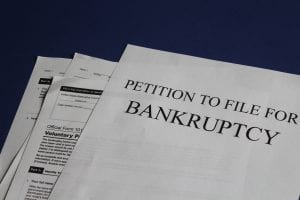While there are potential long-term effects, such as the impact on your credit report, the immediate benefits often outweigh these concerns.
Navigating overwhelming debt can feel like an uphill battle, but Chapter 7 bankruptcy provides a viable solution for many individuals. This blog delves into the various aspects of Chapter 7, from the discharge of unsecured debts to the protections offered through the automatic stay. We’ll also explore the exemptions that allow you to keep some property, the straightforward nature of the process, and the long-term financial impact. Armed with this information, you can make a well-informed decision about whether Chapter 7 bankruptcy is the right path for your financial recovery.
Relief from Debt
One of the primary benefits of Chapter 7 bankruptcy is the discharge of most unsecured debts. This means that credit card balances, personal loans, and medical bills can potentially be eliminated. It’s important to know that not all debts are dischargeable; for instance, student loans and child support obligations typically remain. However, relieving the burden of high-interest debt allows individuals to focus on more critical financial responsibilities. This fresh start can be transformative, providing a renewed sense of financial freedom and peace of mind.
Automatic Stay Protection
Upon filing for Chapter 7 bankruptcy, debtors immediately benefit from an automatic stay. This legal provision halts most collection activities, including wage garnishments, lawsuits, and harassing phone calls from creditors. The automatic stay remains in effect throughout the bankruptcy process, offering much-needed respite for those under financial duress. It’s an essential feature because it creates a stable environment for individuals to navigate their bankruptcy proceedings without the added pressure of ongoing collections. This protection helps ensure that debtors are not further stressed by aggressive creditor actions while they work towards discharging their debts.
Exemption Protections
Chapter 7 bankruptcy allows debtors to keep certain essential property due to exemptions provided under federal and state laws. These exemptions might include equity in a home, a vehicle up to a certain value, and personal belongings necessary for daily living. The aim is to prevent individuals from being completely destitute following the bankruptcy process. Understanding these exemptions is crucial, as they ensure you can retain basic necessities, enabling you to rebuild your financial life post-discharge. Knowing your protected assets allows you to plan accordingly and make informed decisions throughout the process.
Simplified and Quick Process

Compared to other forms of bankruptcy, Chapter 7 is often a quicker and more straightforward procedure. Typically, with the right Chapter 7 lawyer, cases are resolved in a few months, allowing individuals to swiftly move forward. The simplicity lies in the focus on the liquidation of non-exempt assets, making the process less cumbersome for those with limited property. This expedited timeframe is valuable as it reduces the period of financial uncertainty, enabling a quicker return to economic stability. For those who meet the eligibility requirements, Chapter 7 offers an efficient route to debt relief.
Long-term Financial Impact
While the immediate benefits of Chapter 7 bankruptcy are significant, it’s also crucial to consider the long-term implications. A Chapter 7 bankruptcy will remain on your credit report for up to ten years, which may affect your ability to obtain new credit, rent any living space, or even secure employment in some extreme cases. Despite this, many find that their credit scores begin to improve shortly after the discharge due to the elimination of overwhelming debt. By practicing sound financial habits post-bankruptcy, individuals can rebuild their credit and achieve a stable financial future. Knowing this helps in making an informed decision about whether Chapter 7 is the right option for your financial situation.
In conclusion, while there are potential long-term effects, such as the impact on your credit report, the immediate benefits often outweigh these concerns. From the discharge of substantial debts and protection through the automatic stay to the exemptions that allow you to keep essential property, Chapter 7 provides a comprehensive solution for those struggling with financial instability. Understanding the process and its implications enables you to make an informed decision that aligns with your unique circumstances. By taking advantage of the fresh start it offers and practicing sound financial management, you can embark on rebuilding your financial life with greater confidence and peace of mind.


Join the conversation!